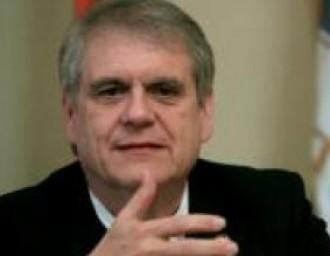Wolfram Maas: It would be wise if Belarus took effort to improve its relations with the EU

The duration of the talks will depend on the willingness of the sides to sign certain agreements, in particular an agreement on readmission, German Ambassador to Belarus says.
If talks between Belarus and the European Union on the simplification of the visa regime are a success, visas will become cheaper for Belarusians, German Ambassador Wolfram Maas said in an interview with BelaPAN.
Mr. Maas expressed gratitude to Belarusian Foreign Minister Uladzimir Makei for announcing during the Eastern Partnership summit in Vilnius on November 29 that Belarus was interested to start talks on visa facilitation and readmission agreements. This announcement helped the summit become a "certain milestone," Mr. Maas said.
"Belarus makes a daily effort for its relations with its eastern partner, Russia, to be as favourable as possible," he said. "It would be wise if Belarus made a similar effort with regard to its western partner. Only time will tell what the relationship between Belarus and the European Union will be like. Talks should be held in this regard."
It does not matter whether it was Belarus or the EU who initiated talks on the simplification of the visa regime, Mr. Maas said. "What this will mean for Belarusians will become clear during the talks and will depend on the progress of our cooperation. In any case, one can be certain that visas for Belarusians will become cheaper," he said.
"Although we, the German embassy, try to treat Belarusians in the most favourable way with regard to the issuance of visas and one-third of all visas are issued free of charge, the embassy is not completely independent in its actions," Mr. Maas noted. "If the 40,000 Belarusians who have to pay for their visas at the rates currently applied to Russia and Ukraine, then citizens of Belarus will save €1.5 million to €2 million a year."
The duration of the talks will depend on the willingness of the sides to sign certain agreements, in particular an agreement on readmission, Mr. Maas said, adding that such talks with other countries had taken one or two years.
"As for the beginning of the talks, I can only quote Belarusian Deputy Foreign Minister Alena Kupchina, who has said that we should not lose time any longer. So I hope that the talks will start soon," Mr. Maas said.
-
03.01
-
07.10
-
22.09
-
17.08
-
12.08
-
30.09








































